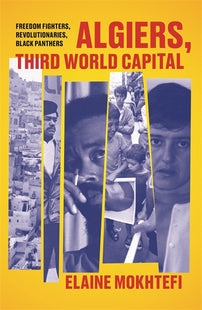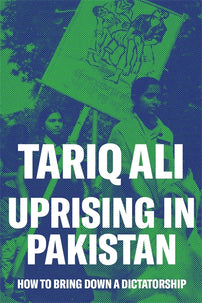Turkey's 68
Turkey's 1968 generation presents an interesting case, not only because the country was undergoing a major transformation, but also because it was a devout NATO ally neighboring the Soviet Union during the Cold War era.

There is an abundance of literature on the 1960s — particularly the generation’s youth movements — in the west, however it is important to study the period in different geographies in order to better comprehend the different colors of the student movements all around the globe. The study of the 1968 generation in Turkey offers a very interesting case, not only because Turkey was undergoing a big transformation during this time, with an increasing population, with a high rate of urbanization and industrialization, but also because it was a devout NATO ally as a neighboring country of the Soviet Union during the Cold War era. Turkey consequently found itself experienced in extremes leading to the political polarization and political violence in late sixties and seventies.
The 1968 generation in Turkey first emerged as a student movement focused on reform within the university system, but towards the end of the sixties it evolved into a revolutionary movement, eventually fighting for the use of revolutionary violence after the military intervention of 1971. The first university occupation began in Ankara University, in the Language-History-Geography Faculty on 10 June 1968, quickly spreading to The Faculty of Law and Sciences on June 11, then to Istanbul University’s Faculty of Law on June 12, 1968. In other words, the 1968 movement in Turkey recruited its members from universities, yet an in-depth study of students from this period shows that only a small minority of young people had the "privilege" to study at university. In the academic year of 1968, for example, only 6.5% of young people within the same age category were university students, and within this category only 19% of the university students were female. In addition, the majority of students came from civil or military bureaucrat middle class families. In short, the typical university student in Turkey at this time was male and came from either a civil or military bureaucrat family, meaning that most of the research on the 1968 generation is focused on male activity. 1 However, it is important to underline that more recent research on the movement in Turkey has shifted its focus to the "women of 1968," and that female members of the generation have begun to share their personal accounts of this period in Turkey, thus creating their own social memories. 2
The establishment’s response to the 1968 generation in Turkey was military intervention, resulting in the military coup of 12 March 1971. At the end of the military regime almost all leaders of the revolutionary movement were killed through execution, operation, or torture, introducing a discourse of martyrs in the revolution, which created mystification over political figures such as Deniz Gezmiş, Hüseyin İnan, Yusuf Aslan, Mahir Çayan, and İbrahim Kaypakkaya. At the end of the 12 March military regime and the subsequent declaration of amnesty in 1974, all surviving members of the 1968 generation were released from prison. In light of the leaders’ deaths at the hands of the regime, it was now the time of apostles, 3 resulting in a fragmentation of those in the movement who were continuing the fight — stronger than ever — later joined by the members of the 1978 generation. “Social movements continued to rise, parallel to its reactionary opponents. The surmounting clashes between leftist revolutionary movements and its reactionary-fascist opponents determined the political fate of the country." 4 The result was the military coup of 12 September 1980, leading Turkey into an authoritarian military regime.
Despite the existence of important biographies, 5 memoirs, 6 and interviews 7 written a posteriori in relation to members of the 1960s generation in Turkey, original documentation from the period remains an under-researched area. 8 In the absence of in-depth research there is now a polarized analysis of the 1968 generation; one which works to mystify the 1968 generation (sure to be intensified by the fiftieth anniversary), while the other lays harsh criticism of the same generation, blaming members for the anarchy and political violence of the period. This phenomenon was also observed during the Gezi protests in Turkey in 2013. The martyrs of the 1968 generation were represented during the protests, with a huge poster of Deniz Gezmiş — a mythical figure of the 1968 generation, executed on 6 May 1972 at 25 years old — hanging on the walls of Atatürk Cultural Center in Taksim, Istanbul. For the protestors, such figures marked the continuity of the Gezi Park protests with the history of resistance in Turkey. However, for those representing the status quo, (for example for the Prime Minister of the period, Recep Tayyip Erdoğan), the presence of these figures during the protests was the very sign that the Gezi protests were dangerous, thus leading Turkey to chaos.
Notes
1. For the studies aiming to understand the university students’ profile of the period see, Nermin Abadan, Üniversite Öğrencilerinin Serbest Zaman Faaliyetleri. Ankara Yüksek Öğrenim Gençliği Üzerinde Bir Araştırma (Ankara: Ankara Üniversitesi Yayınları, 1961); Özcan Köknel, Türk Toplumunda Bugünün Gençliği (İstanbul: Bozak Matbaası, 1970); Özer Ozankaya, Üniversite Öğrencilerinin Siyasal Yönelimleri (Ankara: Ankara Üniversitesi Siyasal Bilgiler Fakültesi Yayınları, 1966); Leslie Roos, Jr., P. Noralou Roos and Gary R. Field, “Students and Politics in Contemporary Turkey,” in Students in Revolt, edited by Seymour Martin Lipset and Philip G. Altbach (Boston: Houghton Mifflin Company, 1969); Nephan Saran, Üniversite Gençliği (İstanbul: İstanbul Üniversitesi Edebiyat Fakültesi Yayınları, 1975). For an analysis of these research see Demet Lüküslü “60’lı Yılları Gençlik Kategorisi Üzerinden Okumak.” In Modernizmin Yansımaları: 60’lı Yıllarda Türkiye, edited by R. Funda Barbaros & Erik Jan Zürcher, 212-230. (Ankara: Efil Yayınevi, 2013); Demet Lüküslü, Türkiye’nin 68’i, 34-43.
2. See Ayşe Yazıcıoğlu, 68’in Kadınları (Istanbul: Doğan Kitap, 2010); Oya Baydar and Melek Ulagay, Bir Dönem İki Kadın. Birbirimizin Aynasında (Istanbul: Can Yayınları, 2011); Gülfer Akkaya, Sanki Eşittik. 1960-70’li Yıllarda Devrimci Mücadelenein Feminist Sorgusu (Istanbul: Kumbara Sanat, 2012).
3. Gün Zileli, Havariler (1972-1983) (İstanbul: İletişim Yayınları, 2002).
4. Emin Alper, “Student Movement in Turkey from a Global Perspective 1960-1971.” PhD Dissertation, Boğaziçi University 2009, p. IX.
5. See Turhan Feyizoğlu, Bizim Deniz (Ankara: Doruk Yayınevi, 1998); Turhan Feyizoğlu, Mahir (İstanbul: Su Yayınevi, 1999); Turhan Feyizoğlu, İbrahim Kaypakkaya (İstanbul: Ozan Yayıncılık, 2000); Turhan Feyizoğlu,İki Adalı. Hüseyin Cevahir-Ulaş Bardakçı (İstanbul: Ozan Yayıncılık, 2010).
6. See Oray Çalışlar, ’68 Anılarım (İstanbul: Milliyet Yayınları, 1990); Hasan Cemal, Kimse Kızmasın, Kendimi Yazdım (İstanbul, Doğan Kitapçılık, 1999); Sezai Sarıoğlu, Nar Taneleri. Gayriresmi Portreler (İstanbul: İletişim Yayınları, 2001); Gün Zileli, Yarılma (1954-1972) (İstanbul: Ozan Yayıncılık, 2000); Gün Zileli, Havariler (1972-1983) (İstanbul: İletişim Yayınları, 2002).
7. See Cüneyt Akalın, Düşler ve Gerçekler. Tanıklıklarıyla Dünya’da ve Türkiye’de 68 (Ankara: Sarmal Yayınevi, 2000); Bedri Baykam, 68’li Yıllar. Eylemciler (Ankara: İmge Kitabevi Yayınları, 1998); Bedri Baykam, 68’li Yıllar. Tanıklar (Ankara: İmge Kitabevi Yayınları, 1999); Turhan Feyizoğlu, Fırtınalı Yılların Gençlik Liderleri Konuşuyor (İstanbul: Ozan Yayıncılık, 2004); Nadire Mater, Sokak Güzeldir. 68’de Ne Oldu? (İstanbul: Metis Yayınları, 2009).
8. In a previous study, I aimed to refer to the existent literature as well as to focus on the original documentation of the period based on my research on books and brochures, personal archives, periodicals and audiovisual material present at the International Institute of Social History (IISH) in Amsterdam. The collections on Turkey are so unique — especially for that period — because many of those materials are either impossible to find in Turkey or are spread out through inaccessible individual collections. I would like to thank International Institute of Social History in Amsterdam for providing me the opportunity to do research in the institute with a five-month postdoctoral research fellowship between September 2011-February 2012. For details of this research see Demet Lüküslü, Türkiye’nin 68’i: Bir Kuşağın Sosyolojik Analizi (Ankara: Dipnot Yayınları, 2015).
Demet Lüküslü is a professor of Sociology at Yeditepe University, Istanbul, Turkey. She received her PhD in Sociology from Ecole des Hautes Etudes en Sciences Sociales (EHESS) in Paris, France in 2005. She is the author of Türkiye’de ‘Gençlik Miti’: 1980 Sonrası Türkiye Gençliği (The "Myth of Youth" in Turkey: The Post-1980 Youth in Turkey) (İletişim Yayınları, 2009) and of Türkiye’nin 68’i: Bir Kuşağın Sosyolojik Analizi (Turkey’s 68: Sociological Analysis of a Generation) (Dipnot Yayınları, 2015). Her areas of research include sociology of youth, sociology of everyday life, sociology of education, social movements and cultural studies.
[book-strip index="1" style="display"]




